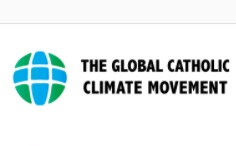. . SUSTAINABLE DEVELOPMENT . .
A press release from The Global Catholic Climate Movement
A coalition of Catholic institutions has today [October 4] announced its divestment from fossil fuels. The coalition of 40 is the largest joint announcement of divestment by Catholic organizations to date. The institutions are located on five continents, and represent fields ranging from a holy site to finance to church hierarchical entities.

Catholic institutions’ decision to remove their support for fossil fuels is based on both their shared value of environmental protection and the financial wisdom of preparing for a carbon-neutral economy.
In Assisi, Italy, the home of St. Francis and a deeply significant place for the world’s 1.2 billion Catholics, three institutions and a municipal government have divested. The Assisi group includes the Sacro Convento, a monastery complex and holy site that houses the remains of St. Francis, from whom Pope Francis took his name. The Sacro Convento is considered the spiritual home of the world’s Franciscan brothers.
Along with the Sacro Convento, the diocese of Assisi-Nocera Umbra-Gualdo Tadino has divested. The diocese, which includes more than 80,000 people and the town of Assisi, is the site of several important pilgrimages each year. Assisi’s Seraphic Institute, a religious medical center that provides care for disabled children, has also joined the divestment announcement.
In a complementary move, the mayor of the town of Assisi has announced its divestment from fossil fuels.
(continued in right column)
Divestment: is it an effective tool to promote sustainable development?
(continued from left column)
In addition to divestment in the highly significant home of St. Francis, church entities around the world are stepping away from fossil fuels. The Episcopal Conference of Belgium, which is the Catholic Church’s policy arm in Belgium, has divested. This is the first Catholic episcopal conference in the world to divest. In South Africa, the Catholic Archdiocese of Cape Town has invested in social and ethical funds. Within the Church hierarchy, a total of one episcopal conference, one archdiocese, three dioceses, and a vicariate have divested.
These spiritual leaders are joined by business leaders. Two financial institutions have announced their divestment. Germany’s Bank für Kirche und Caritas eG (Bank for the Church and Caritas) is one of the first Catholic banks in the world to divest from fossil fuels. The bank, which has a balance sheet of €4.5 billion, is breaking from coal, tar sands oil, and oil shale because it is both morally imperative and fiscally responsible.
The bank is joined in its divestment by Oikocredit Belgium, an ecumenical financial institution and one of the world’s largest sources of private funding for microfinance. Oikocredit is joined by 12 other Belgian institutions.
These institutions are among the 40 that have divested in total. The joint commitment by 40 Catholic institutions more than quadruples the size of an announcement made in May, when nine Catholic organizations divested. Worldwide to date, the total value of those institutions that have committed to divest surpasses $5 trillion.
This divestment announcement comes amid united Christian action to protect the environment during the Season of Creation. The Season of Creation is a monthlong celebration of prayer and action for the environment, and it is embraced by a broad ecumenical community.
Global Catholic Climate Movement is a community of hundreds of thousands of Catholics and a global network of member organizations responding to Pope Francis’ call to action in the Laudato Si’ encyclical.